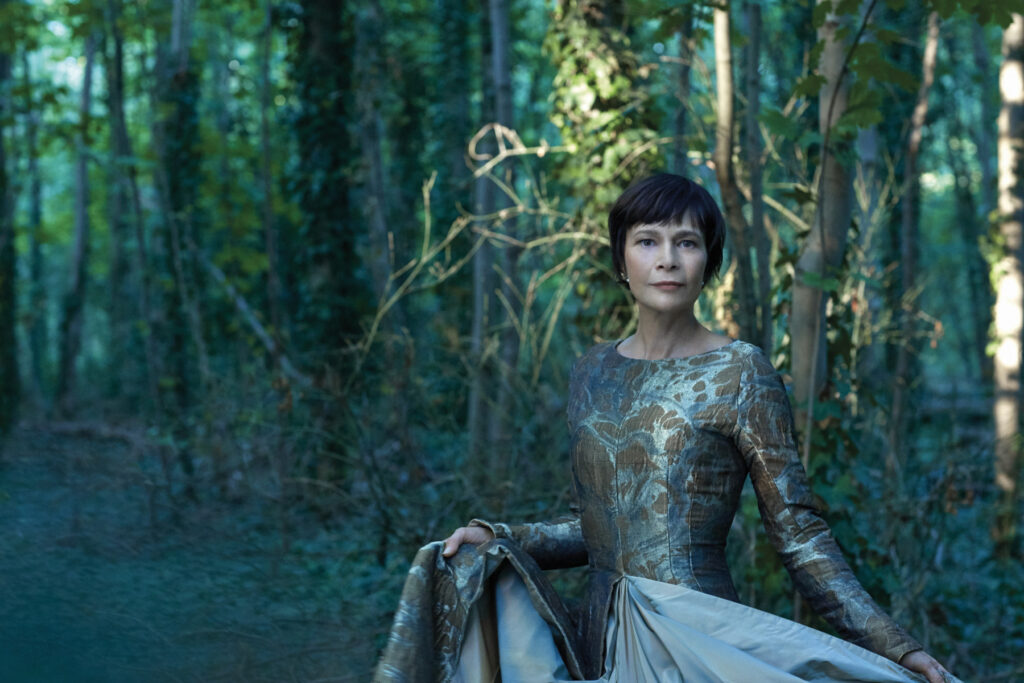Sandrine Piau’s recent Alpha disc (also Enchantresses) was mostly re-enacted in front of us (with a signing afterwards) for this remarkable concert at Wigmore Hall. The instrumental group used was scaled down (six players plus director as opposed to over 20 for the recording), and we had the Overture to Ariodante, not Amadigi di Gaula.
There was some tweaking to the advertised programme: an added March to the Overture to Ariodante, the excision of two movements from the Trio Sonata, Op. 5/4, plus the ‘removal’ of a whole aria from Rinaldo (which functioned, in the end, as the first of two encores). The scaled-down orchestration for the Ariodante pieces actually worked, thanks to an equality of virtuosity from all concerned.
Adelaide’s first act aria from Lotario, ‘Scherza in mar la navicella’ (On the sea the little boat frolics) is the perfect opener, Piau entering while the orchestral opening was in progress. Lots of power in evidence here, plus a very free top range, and an exquisite darkening for ‘Non così questo mio core’ (Not in this way shall my heart), Piau’s voice just strong enough for Handel’s lower-range demands. That darkening seemed more pronounced live than recorded.

For all of the high-powered virtuosity in Handel, it is time-stopping slow arias that really cut deep. One such is ‘Piangerò la sorte mia’ (I shall lament my fate), daringly slow, the line like a rope of silk. And how Piau can soar when she opens out. A lovely touch, too, to begin the recitative (‘E pu così in un giono’; And so thus, in one day) theorbo-only (the wonderful Banjamin Narvey, who also played guitar elsewhere).
Giving Piau rest and creating a web of beauty was Handel’s Concerto grosso in A, Op. 6/4 (also HWV 322). How the silences of the opening Larghetto affetuoso spoke, and how eloquent Catherine Plattner’s first violin. Counterpoint was relished in the second movement Allegro, the tempo not too frenzied, allowing more for unfoldment than tension. The pianissimi of the ‘Largo e piano’ were certainly one element that was noteworthy: notable, too, the harpsichord contributions of Jérôme Correas, imaginative and apt.
Heart-rending again, Alcina’s act II aria, ’Ah, mio cor’ (Ah, my heart) began with frozen shards of strings that seemed to speak of Vivaldi’s Winter. Piau’s ‘Ah!’ came from nowhere, her slurs on ’Schernito sei!’ (You are being mocked!) utterly perfect. The aria is interesting as it contains a massive change, from the opening lament to ‘Ma, che fà gemendo Alcina?’ (But what has set Alcina wailing?), full of proud fire. As a result, the aria’s final word, ’Perché’ (Why?) took on huge emotive power.
The Trio Sonata, HWV 399 (Op. 5/4) was inevitably lighter, but no less inventive. Exchanges in the opening Allegro were miraculously managed. A shame we lost the ‘A tempo odinario’ (the epitome of gallant charm, this movement), but the five-minute ‘Passacaille’ seemed to start from charm anyway before extending itself into a remarkable work of art. Correas’ harpsichord contributions remained incredibly imaginative. This performance ended with a bright, optimistic Menuet. The making is Allegro moderato, but it did feel as if it danced, people would have to hop rather! The result was pure happiness in sound, though.
Finally, for the ‘advertised’ programme (as it were), the astonishing tour de force that is ‘Tornami a vagegghiar’ from Alcina (a true sorceress’s opera). Piau’s unanimity in unison with her colleagues was remarkable. There is a joy to be taken in hearing a performance that is just so perfectly prepared. The encores? Firstly, the missing aria: ‘Il vostro maggio’ (Sirene’s aria), a siciliano of perfect calm. True, its duration and ‘cooling down’ aspect make it perfect for an encore; but it was not the last one. For that, one of the most ravishing arias in all Handel (and the one that closes Piau’s disc)” ‘Lascia ch’io pianga’ from Rinaldo. What an evening! No interval, but an all-Handel experience that will not easily be forgotten.
Colin Clarke
Handel: Ariodante: Overture; March. Lotario: Scherza in mar. Giulio Cesare in Egitto: E pur cosi in un giorno … Piangerò la sorte mia. Concetto grosso in A, Op. 6/4. Alcina: Ah, mio cor; Tornami a vagegghiar; Trio Sonata in G, Op. 5/4 (excerpts).
Sandrine Piau (soprano); Les Paladins / Jérôme Correas, director / harpsichord.
Wigmore Hall, 10 June 2025
Top image: Sandrine Piau
All photos © Sandrine Expilly